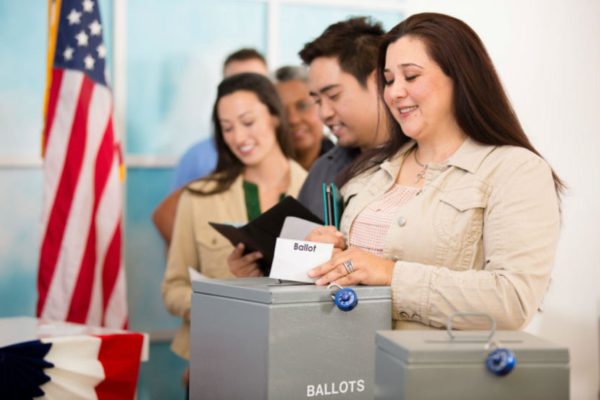The moment a presidential candidate lodged an accusation that the 2016 election is “rigged,” the campaign rhetoric started to feel personal. The candidate asserted that our election is under attack, even from the people at the polls.
The people at the polls? That’s you and me.
This claim has gotten much attention even though it is unsupported by facts, and could set the stage for some to question the outcome of the election. As a voter, this concerns me greatly. An illegitimate or rigged election delegitimizes my vote too.
According to some, the “rigged” system is the news media and their election coverage. A recent survey of more than 1,000 Americans and 1,000 Texans finds that most are displeased with the media’s coverage of politics.
The Texas Media and Society Survey conducted by the Annette Strauss Institute for Civic Life shows that a vast majority of Americans report that they are unsatisfied with how news media cover politics. Three-fourths of Americans believe that the news media’s coverage of politics focuses too much on scandals and the loudest voices, and they believe that reporters should do more to hold politicians accountable.
Although the public disapproval of the media’s coverage of politics is a sign that changes are needed in order to regain trust, media coverage of politics should not be confused with the significance of what takes place on Election Day. We must be careful not to let what began as an attack on the media morph into an attack on us all.
The process that has come under attack in some places is our process; it’s our day. The day when “We the People” have our say. Candidates, campaign operatives, pollsters, pundits and the news media have their days, months and years in the spotlight leading up to the election. But once the polls open and voters casts their votes, the power shifts.
The winner on an election day isn’t determined by the media or their strategists. The winner is determined by the people who vote.
The irony of claiming elections are rigged is that we once had a voting system that was rigged against far too many people for far too long. Many people were denied the right to vote because of their race or gender. That’s not the system we have today. Although problems still occur, voting is a right that has been hard-fought and earned for many Americans. We should not deny that right by claiming the process to be illegitimate.
Even the most well-intended and legitimate elections are not without occasional problems. Few elections occur without a glitch or snag, and we should expect imperfections.
Sometimes these moments may rise to the level of unlawful interferences, intimidation, suppression, discrimination and disenfranchisement. Reports of these instances should be investigated and our laws offer penalties for the perpetrators.
We come together as Americans on Election Day to honor our equality and our freedom. By casting a vote, we collectively take part in one of the most honorable and patriotic acts a citizen can perform.
Respect for the citizens who show up to vote and our allegiance to the ideals of representative democracy require that we take seriously the significance of Election Day. We must rise above our political differences and candidate allegiances and agree not to be cavalier about Election Day dysfunction or proclaim the process to be unfair.
As the final days of the campaign rhetoric place this important day in the political crosshairs, it’s become more personal. I am eager to join my fellow Americans and cast a vote that counts. In my view, that is not rigged. It is power.
Susan Nold is the director of the Annette Strauss Institute for Civic Life in the Moody College of Communication at The University of Texas at Austin.
A version of this op-ed appeared in the Fort Worth Star Telegram, Houston Chronicle, McAllen Monitor, The Rivard Report, Waco Tribune Herald and the Rio Grande Guardian.
To view more op-eds from Texas Perspectives, click here.
Like us on Facebook.




